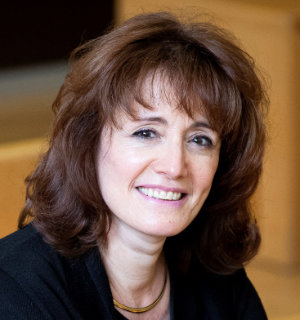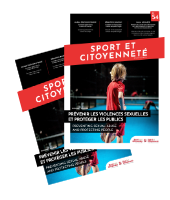“Break the silence and improve our professional practices”
 The project led by “Colosse aux pieds d’argile” (Colossus with feet of clay) was rolled out among the inter-regional directors of juvenile legal protection (PJJ). The services of the PJJ are responsible for supporting, educating and encouraging the insertion of minors with problems, and welcomed the awareness-raising and training sessions on offer. Interview with Caroline Nisand, National Director of the PJJ.
The project led by “Colosse aux pieds d’argile” (Colossus with feet of clay) was rolled out among the inter-regional directors of juvenile legal protection (PJJ). The services of the PJJ are responsible for supporting, educating and encouraging the insertion of minors with problems, and welcomed the awareness-raising and training sessions on offer. Interview with Caroline Nisand, National Director of the PJJ.
What is the PJJ’s mission?
The heart of the PJJ’s mission is using education within the penal framework. This means protecting and educating minors in conflict with the law and getting them into work in order to reduce the risk of them reoffending. The PJJ is responsible for every aspect of juvenile justice and collaboration between the different bodies involved. It supports the children’s judge with its expertise and acts on their decisions. The PJJ takes charge of the young people placed in its public establishments and in voluntary structures under its control.
It has a wide range of solutions to respond to the needs of adolescents who often have severe problems. These young people, who may have broken with their families, schools and society, will be given the chance to learn that strict limits represent security and a stepping stone towards a better future. The professionals from the PJJ intervene daily, working for education, social inclusion and employment. Sport is an integral part of the educational schemes. The area covered by the Colosse aux pieds d’argile project, i.e. sexual abuse, is very sensitive, especially since the young people may themselves have been victims or perpetrators of abuse. Teaching to turn things around, familiar to the PJJ, used here with rugby, seems very relevant to me. The training aspect, the experience of association and the strength of the project managed by the consortium are very convincing, so it was natural for the PJJ to decide to join in.
This project involved several Inter-Regional Directors (DIR). What is their feedback?
The trial was run in five of the PJJ’s DIR. Sexual violence is never easy to deal with. The professionals need tools and go-betweens to make it easier to approach these sensitive subjects. The feedback is very encouraging. In training, the teaching professionals stressed that the interventions improved their means of installing a feeling of confidence with the young people and helped them talk about things.
These professionals welcomed the awareness-raising days very positively. Using rugby was a successful way to break the silence and approach targeted problems with a certain objectivity. Several DIRs declared their interest in continuing the schemes with the association, which shows the project’s usefulness and strength.
How can the project be useful for PJJ services?
Every day the PJJ is confronted with the reality of sexual violence and bullying, be it in the family setting, school, or in the context of sport.
The PJJ needs to be central in dealing with this issue, by supporting prevention and awareness-raising schemes. This collaborative work is a response to a perceived need to curb a phenomenon which is not in fact new, but which has only recently been recognised. By working together to share and forge new practices with our partners, we are arming our professionals and maximising the possibility of having a beneficial impact on young people taken in charge.
Is sport a mediation tool for the PJJ?
Sport and physical activities (SPA) are used every day by our educational professionals. SPA are sometimes used as an outlet or occupation, but always with an educational goal, and they are an integral part of our educational work using learning as a way to turn things around. Whether it is by forging links with the teaching staff, developing psycho-social skills or learning the rules for living with other people, sport can touch each of the young people in our care and offer them perspectives in building their future. Equally, sport gives the PJJ interesting opportunities for finding jobs.
These aspects are largely recognised. The Sport and Justice Ministries have been working together since 1986, promoting SPA for people in detention, with an agreement protocol which is regularly renewed, adapted and supported by the two ministries.
Every year, the Michelet Challenge brings more than 300 young people together for sporting competitions. How much influence does such an event have?
It is one of the PJJ’s own schemes, a proof of the creativity and ambition of stakeholders in juvenile justice. It is an annual meeting for many of the young people in our care and professionals from the PJJ. It marks the end of a cycle, confirms the educational
work of the whole year and recognises the progress made by the young person.
The level of sporting performance is not important, even if talents are discovered each year. The challenge allows us to work on the notions of respecting the rules and other people, accepting differences, being tolerant, and working and living together. It is also the opportunity to work on what they have done, behaviour in general, for constructing their personality and finding their place in society. The real challenge for these young people is to take full advantage of this project and see it through, to open up to other people and to get to know themselves.
 Find this article and more in our special magazine :
Find this article and more in our special magazine :
PREVENTING SEXUAL ABUSE AND PROTECTING PEOPLE







 INSCRIPTION
INSCRIPTION CONTACT
CONTACT FACEBOOK
FACEBOOK